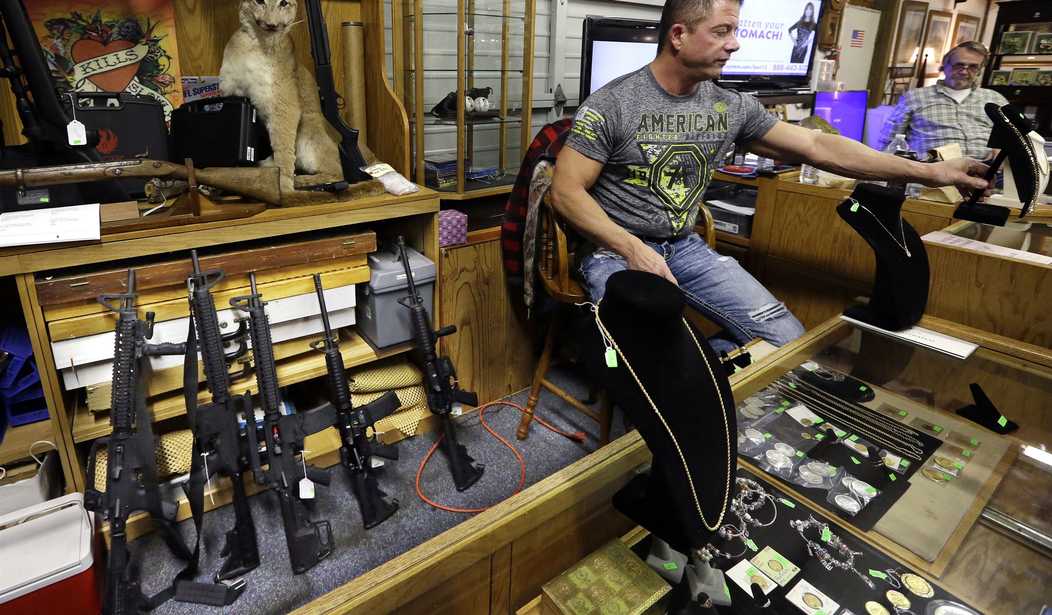There were some interesting revelations made to Congress by the Bureau of Alcohol, Tobacco and Firearms recently. (A name that I’ve always personally felt would be better used for a store than a government agency.) They revealed that the ATF is in possession of a massive trove of records detailing the legal purchases of firearms by American citizens. And when I say “massive,” that’s probably an understatement. At a facility in Virginia, they are sitting on more than 920 million of these records in both hard-copy and digital forms. And there are efforts underway inside of the Biden administration to increase the rate at which they acquire and store these records. Since it’s against federal law for the federal government to establish or maintain a national database of gun ownership, that’s a rather curious development, isn’t it? (Free Beacon)
The Biden administration is in possession of nearly one billion records detailing American citizens’ firearm purchases, far more than Congress and the public has been aware of, according to new information from the Bureau of Alcohol, Tobacco, Firearms, and Explosives obtained by the Washington Free Beacon.
The ATF disclosed to lawmakers that it manages a database of 920,664,765 firearm purchase records, including both digital and hard copy versions of these transactions. When a licensed gun store goes out of business, its private records detailing gun transactions become ATF property and are stored at a federal site in West Virginia. The practice has contributed to the fears of gun advocacy groups and Second Amendment champions in Congress that the federal government is creating a national database of gun owners, which violates longstanding federal statutes.
So here’s how this works. Licensed firearms dealers are required by law to keep records of all sales. Those records must be kept for twenty years, after which they can be destroyed. But if the gun shop goes out of business, all of its records automatically become the property of the ATF and they are transferred to the facility in Virginia. That adds up to a lot of records after a while as you would probably imagine. But there is no expiration date on the records once the ATF has them, so they are held in perpetuity. That’s how they managed to reach a number currently closing in on one billion.
If the records were just sitting there and available for law enforcement to check them when investigating crimes, that might not be all that worrisome. But it turns out that there is a lot of activity taking place at that Virginia facility on an ongoing basis. They are currently taking all of the hard-copy records and transferring them over into a digital format and entering them into a massive database. ATF reports that nearly 866 million of the records are already digitized and in the database.
At the same time, there is an effort underway inside the Biden administration to do away with the legal provision allowing gun shops to destroy their records after twenty years. No explanation has been offered as to what law enforcement benefit that would provide.
So why is this problematic? According to the provisions of the Firearms Owners Protection Act of 1986, the federal government is forbidden from establishing or maintaining a national database of gun owners. The ATF is part of the federal government, so this should really be a violation of the law. And such a database would allow the federal government to begin tracking people who legally own firearms and have not been accused of any crimes.
The ATF insists that the database is only used to investigate and trace the ownership of guns used in crimes. Perhaps so, but that doesn’t remove the possibility that others are looking at it. And if it’s against the law for the White House to set up a gun ownership database, why would the Biden administration be fighting to eliminate the 20-year record retention policy? None of this is conclusive at this point, but where there is smoke you frequently find a fire. And this news is sending up a lot of smoke signals.








Join the conversation as a VIP Member